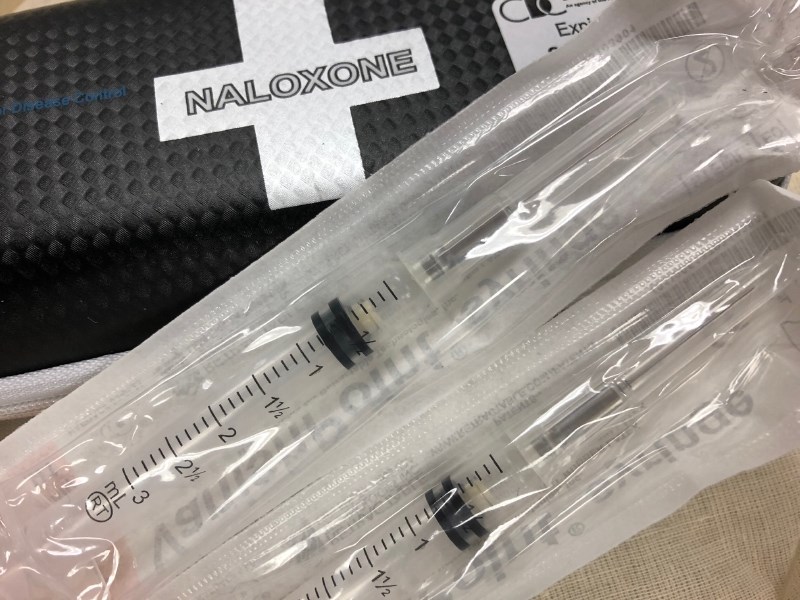Island Health has extended its drug overdose warning for Greater Victoria following a surge in incidents over the past two weeks.
The first alert was issued Aug. 7 after the number of overdoses doubled at supervised consumption and overdose prevention sites.
Medical health officer Dr. Paul Hasselback said such alerts are rare and usually there’s rapid improvement.
“What’s happened in Victoria is we’ve just sort of seen the levels [of overdoses] continue to be at a higher level than would be expected for that time period over the last few weeks,” he said.
The alert was extended Thursday for another seven days.
Hasselback said the health authority bases its decision on regular monitoring of ambulance calls, emergency room visits, fatalities and overdoses at harm reduction sites.
He was unable Thursday to provide detailed numbers of overdose calls. But when the alert was first issued, the health authority said overdoses at safe consumption sites and overdose prevention sites had doubled from an average of about four a week over the previous three months.
The B.C. Coroners Service said Thursday that it has not seen a spike in fatalities in Victoria over the same time period.
The service is investigating the death of a female teenager in the Jacklin Road area of Langford on Aug. 8. Family members have identified the girl as 16-year-old Abby Barker and believe she died from a suspected overdose.
There were 23 overdose deaths in Victoria in the first five months of the year.
Hasselback said the cause of the latest increase in overdose incidents remains unclear. But, typically, a spike in cases stems from changes in the drug supply, particularly as they relate to powerful synthetic opiates fentanyl and carfentanil, he said.
“We certainly have seen increased carfentanil in substances in B.C. over the last year or so,” he said. “It’s become commonplace to have it identified.”
Don Evans, chief executive officer of Our Place, said his agency has noticed an increase in overdoses as well.
“I think this just really demonstrates how at risk people are,” he said. “With this toxic drug supply, it’s just so unpredictable.
“People don’t know what they’re buying. So the stuff out there right now is more dangerous — that’s the bottom line.”
Evans said the ongoing situation points once again to the need for a regulated drug supply.
“We have to be able to provide these substances through the health-care system instead of the street,” he said. “It’s the only way we’re actually going to deal with the overdoses, because as long as people are buying this on the street, and it’s contaminated with fentanyl, then people are going to continue to die and be at risk.
“I think the government just needs to take the next step — and I know it’s a big step to take — but we have to protect the lives of these vulnerable people.”
The overdose prevention site operated by AVI Health and Community Services in Victoria has not seen an increase in overdoses, Heather Hobbs, manager of harm reductions services said in a statement Thursday.
But she said the overdose crisis will continue unless governments “dismantle our deadly drug policy and replace it with a coordinated, comprehensive, evidence-based strategy.”
She added that community-based harm reduction programs are key to prevention and “must be properly funded beyond small pilot projects and short-term contracts.”
Pls RT. The overdose advisory for Victoria has been extended: https://t.co/yVVGDNFGqW#stopoverdose pic.twitter.com/7SzdU8Mu1C
— Island Health (@VanIslandHealth) August 14, 2019



